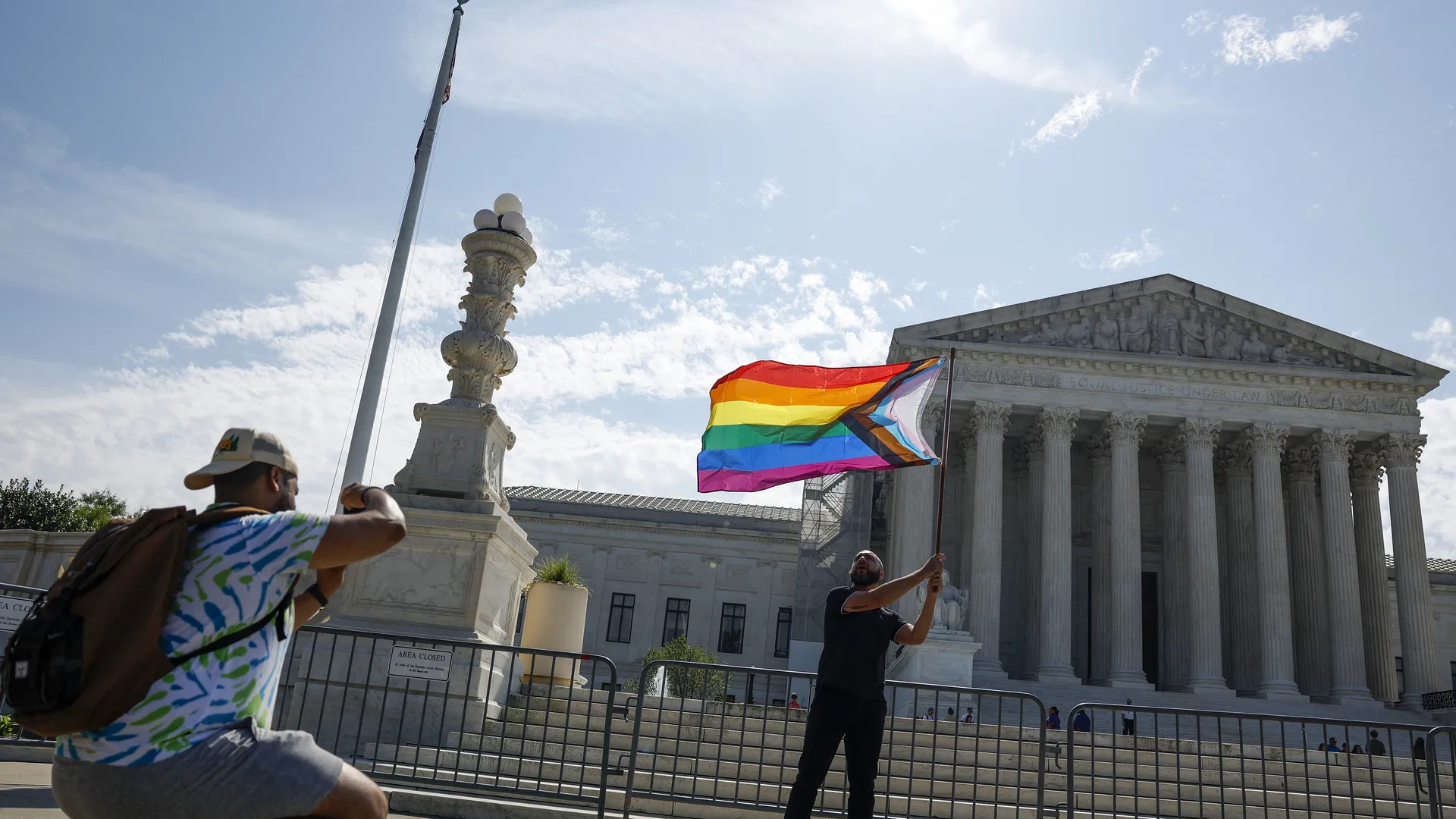Supreme Court Gay Marriage and the Rejection to Overturn the Decision

On November 10, 2025, the Supreme Court of the United States quietly said “no” to reopening one of the most consequential civil-rights decisions of our time. Without commentary, the Court declined to hear an appeal from Kim Davis, the former Kentucky clerk who refused to issue marriage licenses to same-sex couples and, in doing so, asked the Court to revisit the 2015 landmark ruling Obergefell v. Hodges that recognized the nationwide right to same-sex marriage.
The right of same-sex couples to marry remains protected. For many people, that’s relief. For some, perhaps opportunity lost to challenge the precedent. Let’s dig in.
What Happened and Why It Mattered
Back in 2015, Obergefell v. Hodges held that the Constitution guarantees the right of same-sex couples to marry.
Fast-forward to 2025. Kim Davis had sought to appeal a lower-court order that found she violated the rights of a gay couple and required her to pay damages and fees.
Her appeal asked two things: first, relief from the personal liability she faces as a result of refusing to issue a license.
Secondly, that the Court revisit and overturn Obergefell.
The Supreme Court, in a brief unsigned order, denied review. It did not explain its reasoning and did not indicate dissent. In doing so the Court effectively said: “We’re not going to take up this challenge. Obergefell stands.”
What People Are Saying
Voices on both sides spoke up immediately.
From the marriage-equality side: Human Rights Campaign president Kelley Robinson declared:
“The Supreme Court made clear today that refusing to respect the constitutional rights of others does not come without consequences.”
Marrying couples, families built around same-sex relationships, advocacy groups: they breathed a sigh of relief.
On the other side: Liberty Counsel (representing Davis) said strongly that their work isn’t done. Founder Mat Staver committed to continuing the challenge:
“We will continue to work to get a case to the high court to overturn Obergefell … It is not a matter of if but when the Supreme Court will overturn Obergefell.”
While the Court didn’t act now, it left open the possibility of future conflicts.
Why This Moment Is Significant
1. It reinforces the stability of marriage equality for now.
By declining to hear the case, it means the legal foundation for same-sex marriages in the United States remains unchanged.
- It shows the tension between religious-liberty claims and anti-discrimination law.
Davis argued that her religious beliefs gave her a First Amendment right to refuse to issue licenses to same-sex couples. The lower courts rejected that when government officials perform public duties.
That conflict isn’t resolved nationally and could reemerge in other contexts: officiating weddings, adoption, public licensing, and more.
3. It gives breathing space to couples and families.
For the people whose lives changed because of marriage equality, who married, adopted, formed families, built businesses, this is a win. As Mary Bonauto (who argued Obergefell) said:
“The only thing that has changed since Obergefell was decided is that people across the country have seen how marriage equality provides protection for families and children…”
Not a trivial thing.
What Comes Next
Just because the Court passed this particular case doesn’t mean the broader question is entirely closed. Here’s what to keep an eye on:
- New legal challenges: Other cases might be structured more cleanly to force the Court’s hand. Davis’s case may have lacked the ideal angle. Legal experts said the petition “does not actually present, in a square and clean way, the question …”
- State-level changes: States or local officials might enact laws aimed at limiting certain aspects of marriage equality (e.g., officiants refusing to marry same-sex couples). Some states are already moving in that direction.
- Public reliance: One reason the Court may have been reluctant is “reliance interests”. People have married, children born, lives built around the expectation that the law stays as is. Overturning or significantly changing it would cause problems.
Back in June 2015, the Supreme Court in Obergefell held that same-sex couples have a constitutional right to marry under the Fourteenth Amendment’s guarantees of due process and equal protection. It meant states could not ban same-sex marriage. (In fact, a powerful line from Justice Anthony Kennedy in the majority: the hope of gay people “not to be condemned to live in loneliness … They ask for equal dignity in the eyes of the law.”)
Wrapping Up
The Supreme Court’s decision this week is a decision: no comment, no fanfare, but a clear act. The status quo stands. Marriage equality remains protected under Obergefell for now.
That doesn’t mean the story ends here. Legal front lines shift, new cases will come. Social and political winds will blow this way and that. But for the moment, for couples, families, and friends of the LGBTQ+ community, this is a quiet reassurance.
As Mary Bonauto put it:
“Today millions of Americans can breathe a sigh of relief for their families, current or hoped for…”
And they ought to. Because in life, what matters most is more than the letter of the law. It’s the sense that you’re seen, you’re respected, you belong.
Kelley also said in a statement, “Today, love won again.”




